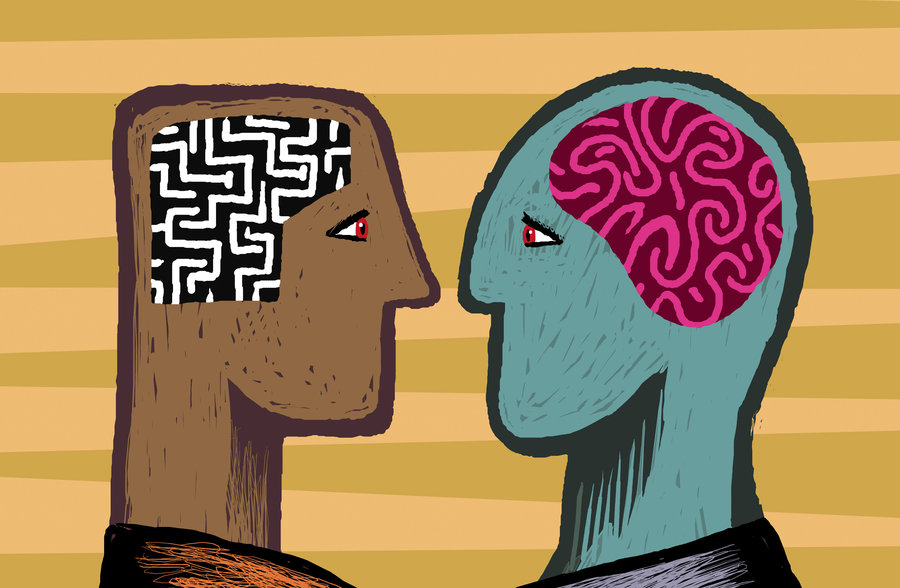Seems relatively important to make good choices, be that in a personal or professional context. Don’t think I need to belabor that point too much.
Most of our decisions and choices in a given day are ultimately habituated (and many are negative). Here’s the interesting thing from a work standpoint, OK? We have tons of research around the psychology of decision-making. Decision-making and choices are literally the cornerstone on which work rests. You go to an office, you make decisions, they have consequences, you leave, you come back, and you do the same thing the next day. Work is really just a series of decisions that are ultimately tied to results.
But over time, we came to separate these concepts into two silos. People who work are “hustling” or “entrepreneurial” and people who think about the psychology of decision and choice are “academic” or “ivory tower.” Never the twain shall meet. Now, in Silicon Valley and other places, you have people discussing mindfulness and brain hacking and best selves and all that — so here and there, the psychology of decision and choice is aligning with how we work.
But is that normative? No. Not yet. Probably never will be either. “Business guys” think of themselves as “I’m out here slaying dragons” because they have to think of themselves that way. It’s closely tied to self-worth. They don’t want to think about psychology. They want to hit KPIs, relentlessly execute, scale massively, and constantly tell everyone how hard they work. This is reality.
But now we have some new research on how to make good choices. Let’s take a look.
Two tiers of research on how to make good choices
First you’ve got this research, with a sample size of 2,783 and this essential takeaway:
Overall, we found that people were, on average, 22% more likely to choose the objectively best option when they viewed options together rather than one at a time.
Alright. Remember that. Now we’ve got this research on choices, decisions, and innovation. Here’s a key part:
Platt’s research extends to studying decision-making and how people weigh trade-offs between continuing to exploit something they know well versus taking risks to explore new ways of doing things. “That is where the spark of innovation comes from,” he added.
OK. Now let’s put these together.
What can we learn here?
Well, first, you make good choices by comparing all options together, as opposed to one at a time. This has applications to selecting a laptop, a vacation, or hiring a new employee. It makes sense too: if you evaluate one-by-one, eventually your brain will want to compare — but then you’ll have to go back to remember what you want to compare to. Brains are inherently somewhat lazy. So that’s maybe not ideal in terms of what we want to do.
Second: you need to move away from your ideas and become comfortable with different ideas. That isn’t happening at all right now — confirmation bias is everything — and that’s creating societal issues including loneliness, isolation, and mass nervousness. It definitely doesn’t happen much in companies. Also logical: to advance at a job, you typically need to be seen as “one of them,” i.e. the pre-existing stakeholders. That leads to a lot of group think and homophily, which creates everyone’s favorite workplace sentence: “Well, we’ve always done it that way.”
But as noted above, thinking differently is the only way to get to innovation. Today is the 10 year anniversary of the iPhone, right? 20 years ago if you described the iPhone to someone, they’d laugh in your face. You think Tesla was a reasonable idea 30 years ago? No. Those are obvious examples, but if you want to innovate, you need to think differently. It’s that simple. (It’s actually the definition of the word.)
My personal take on how to make good choices and what happens when you don’t
I think this is important, so I’ll give it a few paragraphs.
We all obviously want to make good choices more often than not, but no one bats 1.000 here. Many of us whiff more than most. For example, I’m in the process of getting divorced. Sucks, hard, etc. Brings up a lot of issues around choices and decisions you made in the past. Makes you rethink and question a ton of stuff, right? (Take my word for it if your marriage is social media perfect.)
Point is: we all fail. We all whiff. It happens every day at work (maybe every minute), for example, and embracing that failure has even been shown to help companies grow financially.
So you’re not always going to make good choices, individually or at the organizational level.
Then what?
Be good to yourself and learn from the failure.
Think on it: what could have happened differently in approach or outcome? What other sides might you be missing?
If you treat failure (the times you don’t make good choices) as a lesson rather than a hit on who/what you are, you’ll be OK. At least I think. I guess I can report back on that in a while.
What else would you add on how to make good choices?

“But over time, we came to separate these concepts into two silos. People who work are ‘hustling’ or ‘entrepreneurial’ and people who think about the psychology of decision and choice are ‘academic’ or ‘ivory tower.'”
A veritable Athens v. Sparta dynamic at play in the modern workplace. If it’s indeed true, it’s sad that we continue to be unable to connect research with practice.
“Those eggheads publish some paper? I don’t have time for that shit, I got a standup on Q2 revenue plays in 15 minutes!!!”